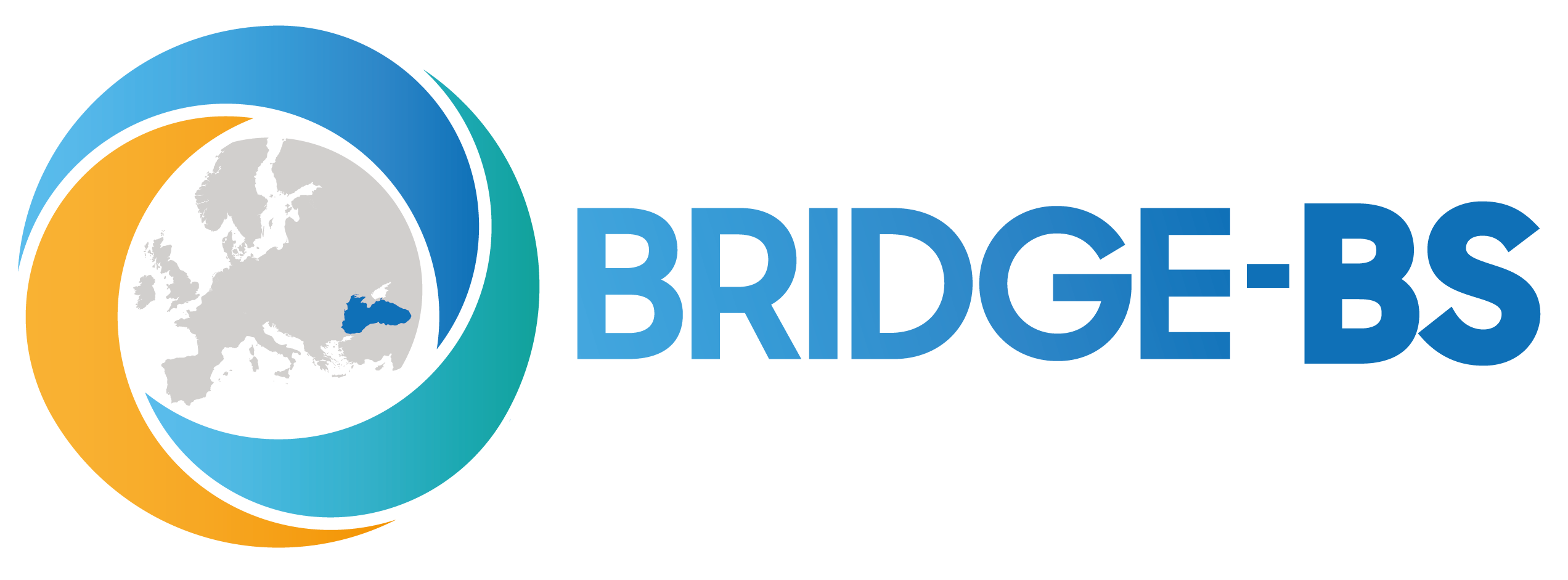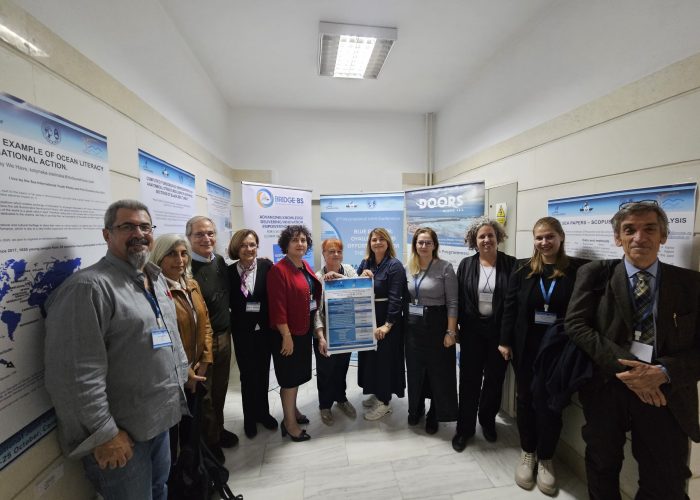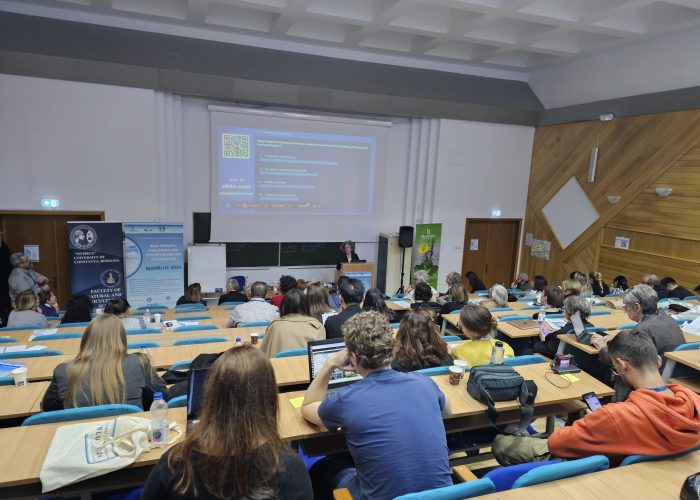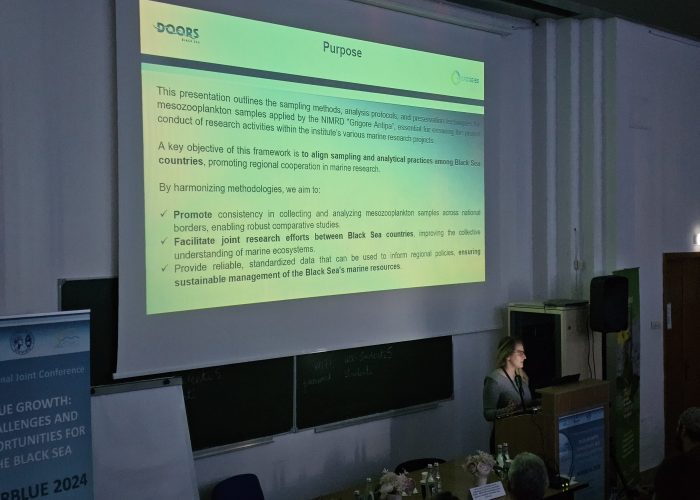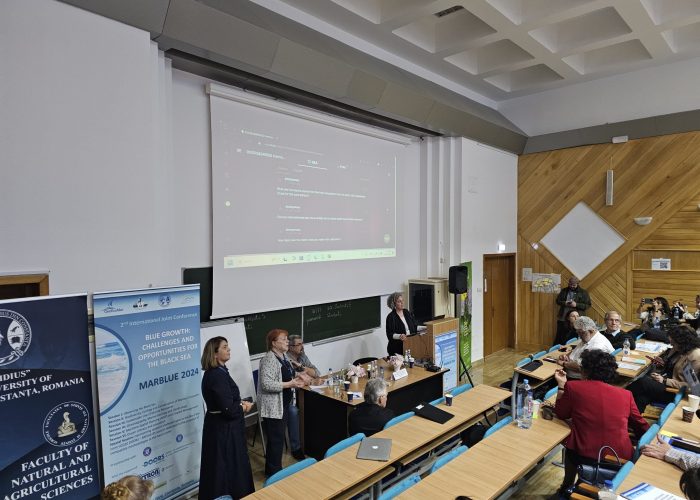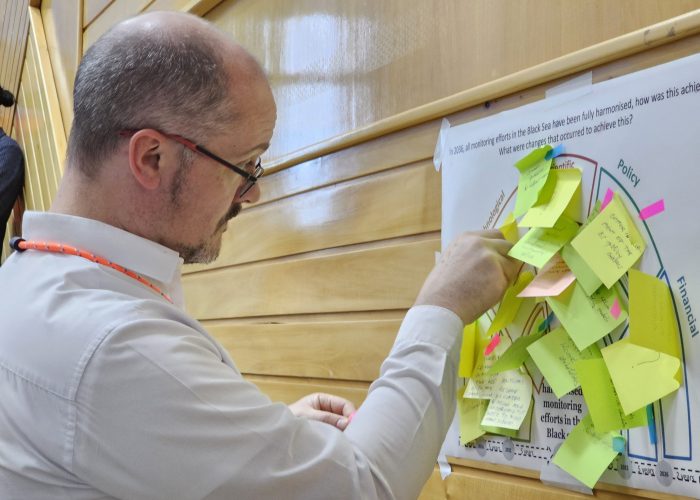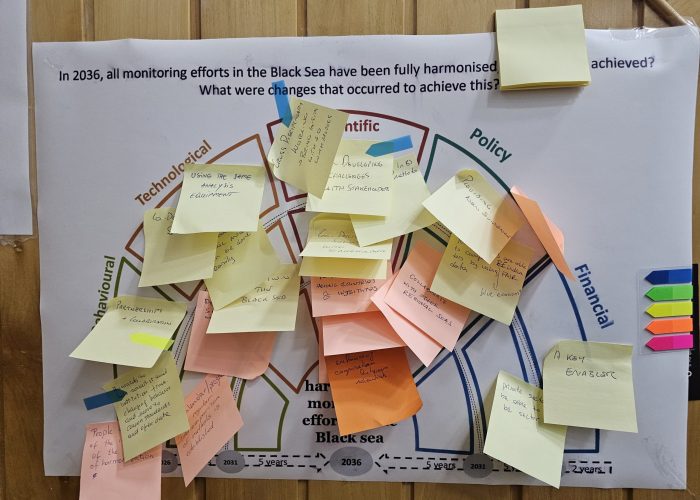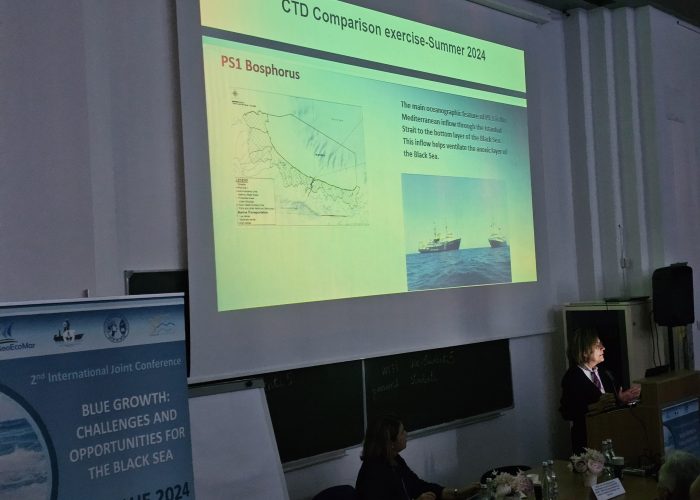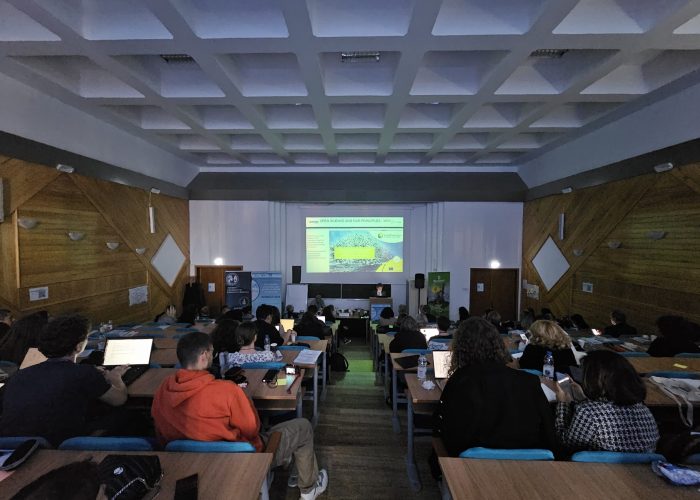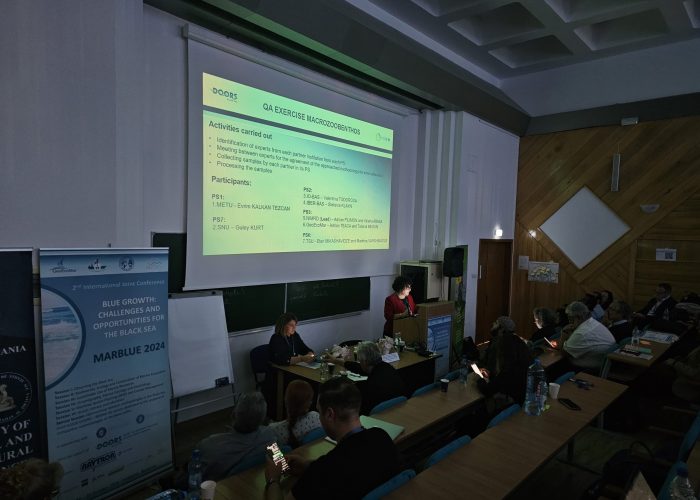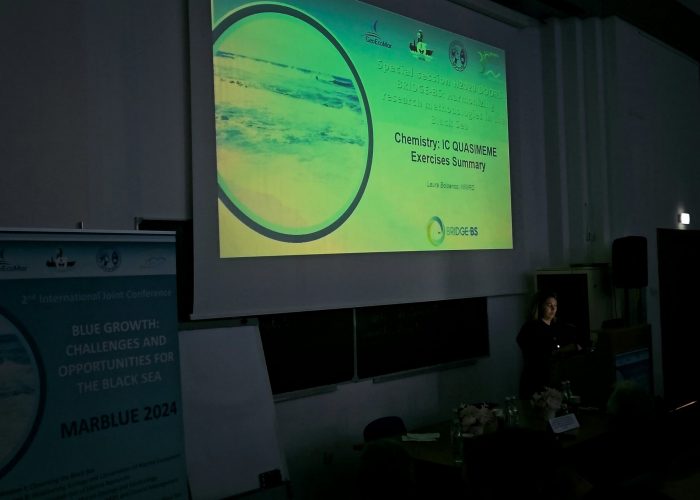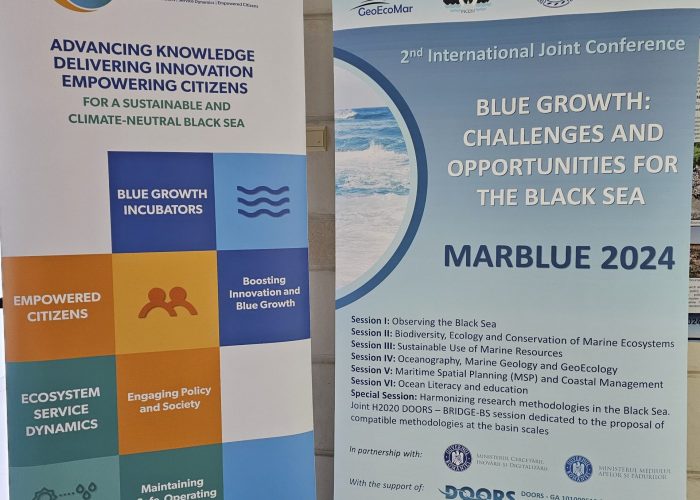A Joint BRIDGE-BS and DOORS Special Session was held at MARBLUE 2024!
MARBLUE is an international conference dedicated to the protection of the Black Sea through sustainable, multidisciplinary development. The second edition took place in Constanta from October 23-25, 2024, providing a platform for meaningful discussions that encompassed both fundamental research and technological innovations among scientists and industry representatives involved in blue economy sectors.
Led by the project partners NIMRD, Istanbul University, and HCMR, the special session focused on harmonizing research methodologies in the Black Sea. It attracted 88 participants from 14 countries, including Belgium, Bulgaria, France, Georgia, Greece, Ireland, Italy, the Netherlands, the Republic of Moldova, Romania, Spain, Türkiye, Ukraine, and the United Kingdom. Attendees represented various sectors such as academia, research, education, policy-making, local authorities, NGOs, and the private sector.
During the session, representatives from both the BRIDGE-BS and DOORS projects presented their specific objectives, goals, and deliverables. The BRIDGE-BS team focused on harmonizing research frameworks to streamline data analysis and reporting. At the same time, the DOORS team provided complementary goals highlighting interoperability and integration within broader marine data initiatives.
BRIDGE-BS highlighted our approaches to harmonising key research methodologies, with presentations on:
- Chemistry and Quality Assurance: An overview of the IC Quasimeme exercises and a quality assurance initiative for macrozoobenthos, ensuring consistency in chemical and biological measurements.
- CTD Comparison Exercise: Preparations for the 2024 summer exercise aimed at setting benchmarks for oceanographic data comparability.
- Chlorophyll-a Methodology: A framework for aligning chemical and biological parameters, using chlorophyll-a as a case study.
- Mesozooplankton Sampling Framework: Insights into sampling and analysis standards.
The DOORS project followed with a discussion on its harmonization and inter-calibration efforts, emphasizing:
Harmonization and Intercalibration Exercises: Key methodologies for assessing chlorophyll and marine litter to ensure aligned research outputs.
Open Science and FAIR Principles: Initiatives promoting accessible, transparent, and reproducible science, which were well-received as critical for future collaborative efforts.
The session also fostered discussions on next steps, with both project teams reflecting on their methodologies and identifying potential areas for further harmonization. Participants shared valuable insights on how these aligned practices could enhance regional marine research and improve data-sharing protocols.
Overall, the session revealed promising avenues for future collaboration, strengthening data harmonization efforts and fostering synergies for initiatives in the Black Sea.
